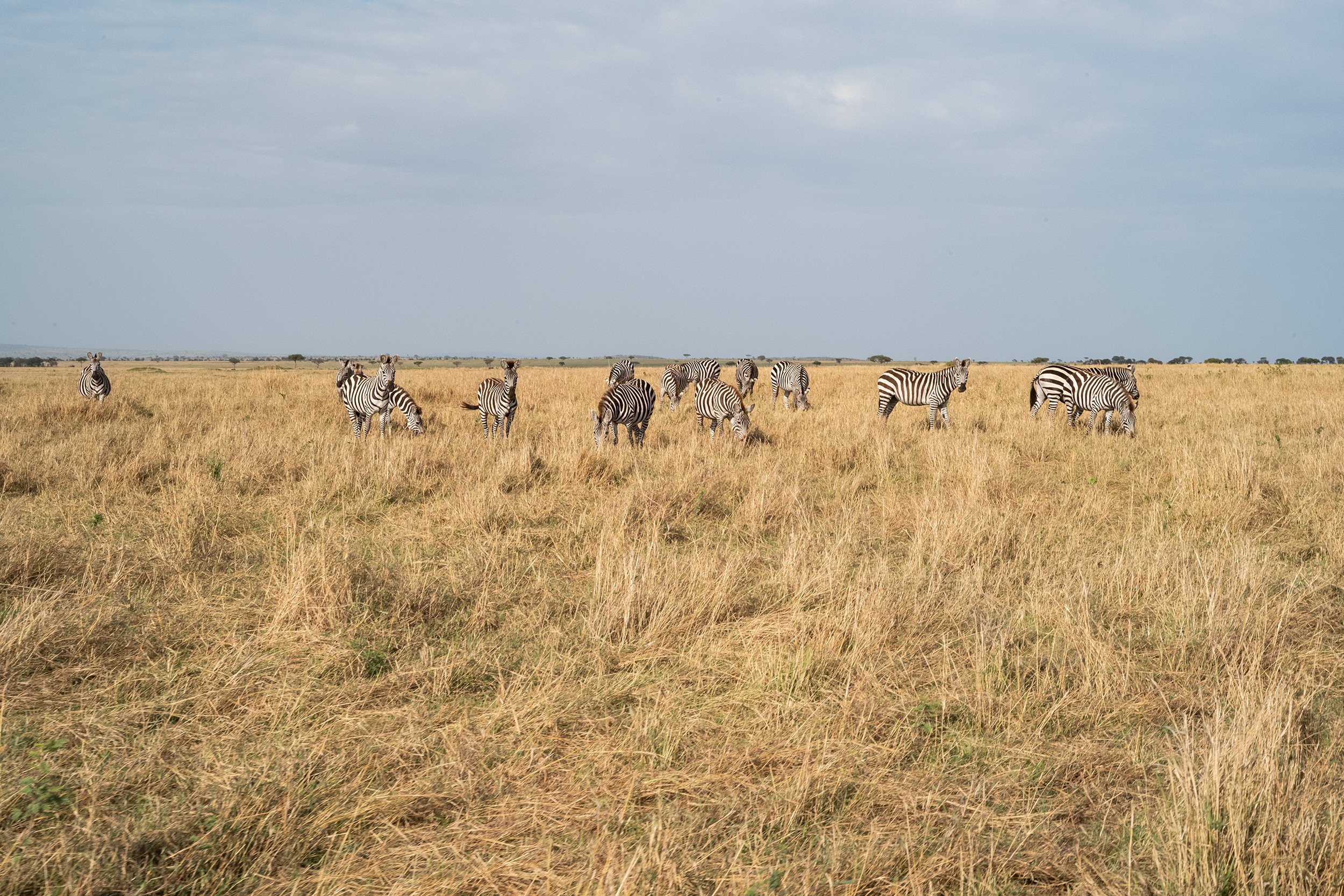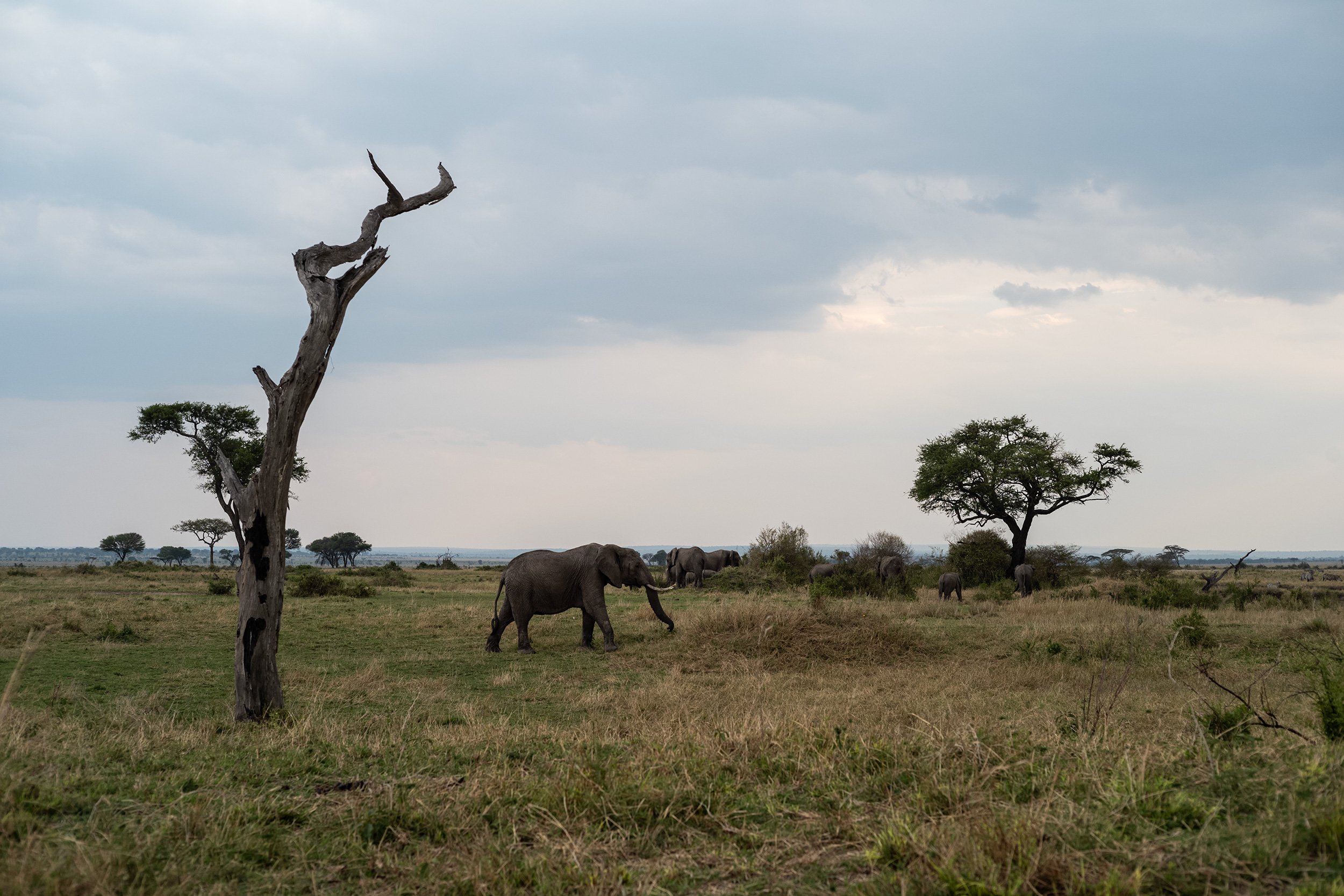
Tanzania
Chapter one
The Serengeti.
Departing the Masai Mara.
I met Francis at 0900 for the drive to the airport. We couldn’t go back the way we came; the rains had raised the level of the river and he didn’t think we’d be able to pass. Instead, we drove out the main gate and through the neighboring town to a smaller gate to get back in. I welcomed the detour and the opportunity to take a look at one of the towns that border the park.
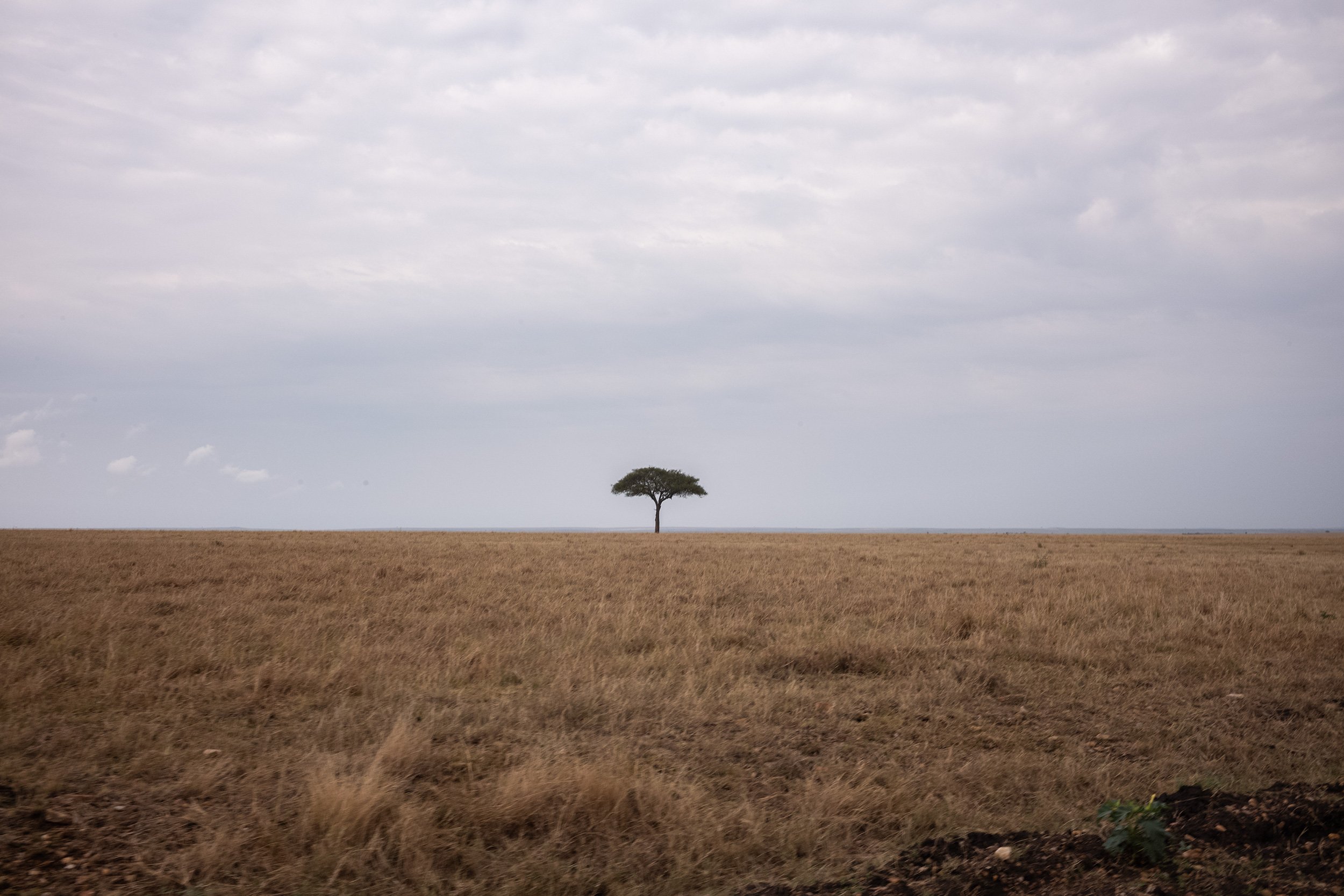



Near the airstrip we saw a group of vultures feeding on the carcass of a zebra. Storks hung nearby to fight them for food. Francis explained that the storks’ beaks weren’t strong enough to cut through the skin and get at the meat and so they relied on vultures to play the role of butcher. They would then fight them for food.
Smaller scavengers lingered as well, jumping in when the vultures stepped aside and then dispersing as the vultures returned. Francis had to prompt us to leave. Once again I could have sat and watched them all day.
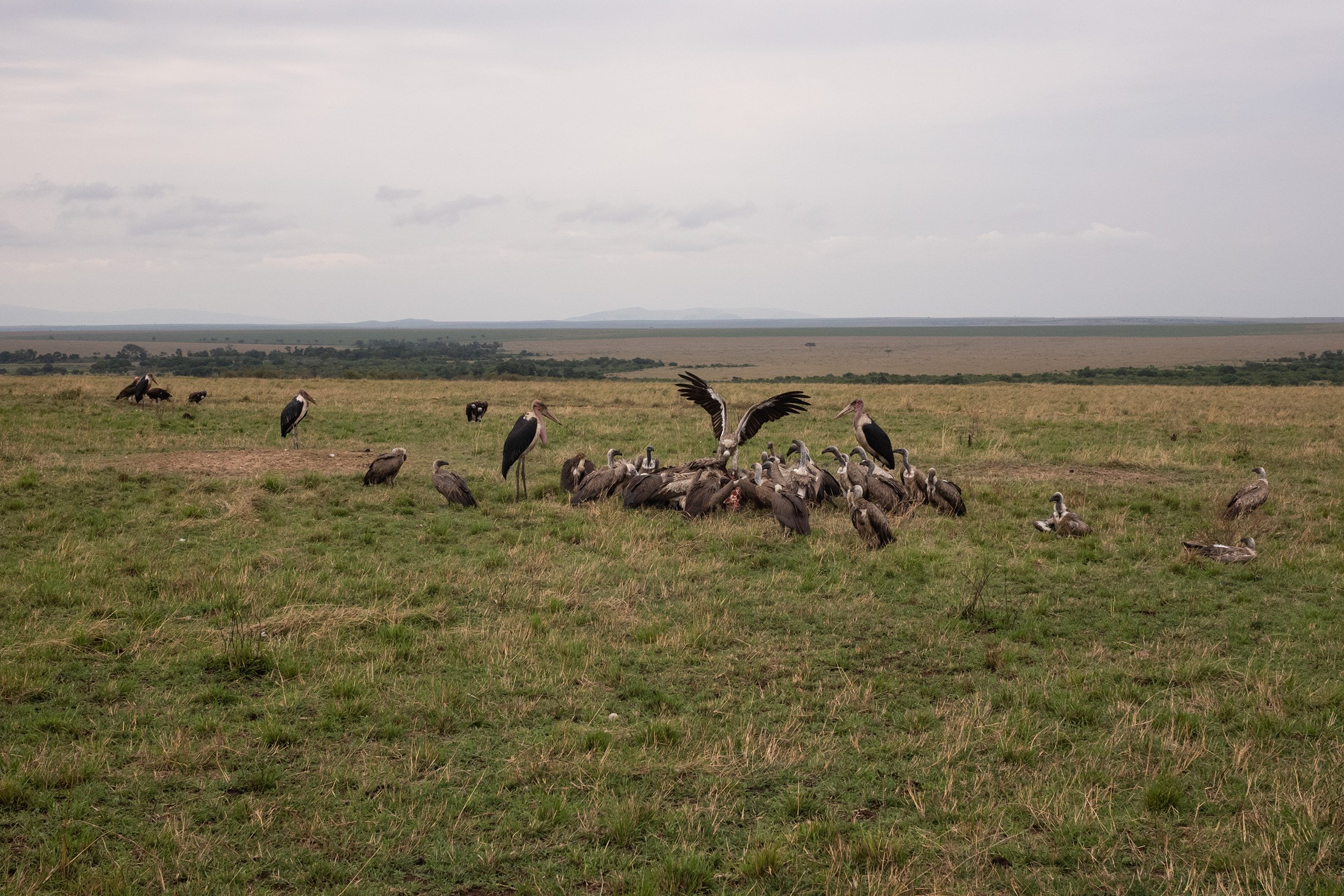
The flight left early, stopping at another airstrip en route to Wilson. There, we were met by attendants who walked us through arrivals and customs. They then led us to the waiting planes and had us verify our bags before boarding.
On board I asked the pilot if he was Mohammad. He looked familiar and it was difficult to identify people under their masks. He said no but that they had a Mohammed who flew for the airline. And not to worry, he assured me. I’m the better pilot.
The pilot told us we may be able to see Kilimanjaro on the left but it proved too overcast. At Kilimanjaro international attendants met us as well. He said he knew who I was without telling him. I asked him my name. He said Eugene. I guess I was the only Asian on board.
At the airport they administered rapid Covid tests. We waited for our certificates of negative results before heading to pick up or apply for our visas. My E-visa could not be located and so I had to pay another $100 to get a new one processed. So much for speeding through the line. I went from being one of the earlier people to get my visa to the last.
We flew first to Kuro. Departing we flew over a huge herd of Buffalo but I screwed up the focus and didn’t get a good shot. Halfway to the Lamai airstrip we passed over the Ngorongoro Crater and lake Victoria. Thirty minutes later we arrived in the northern Serengeti.

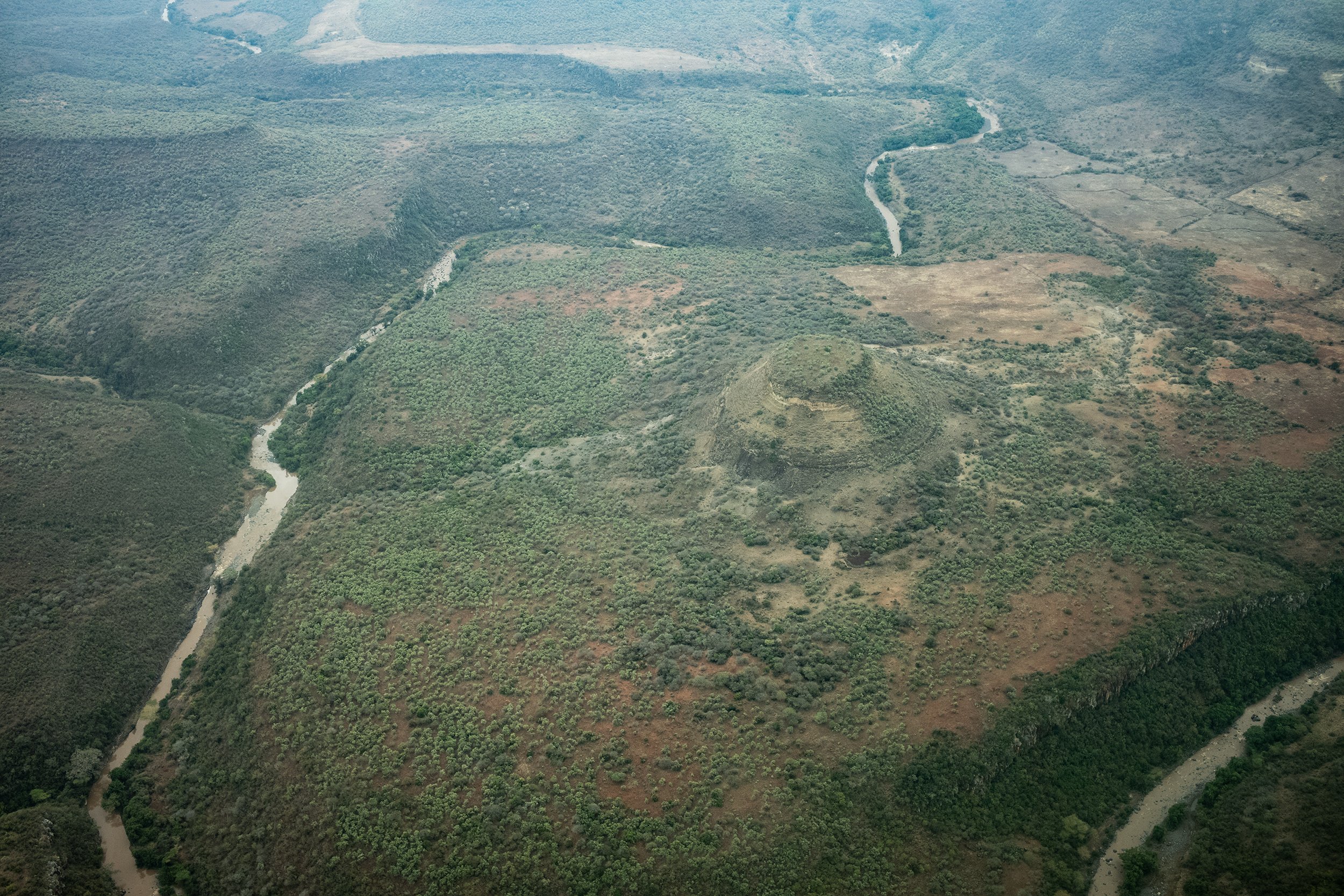

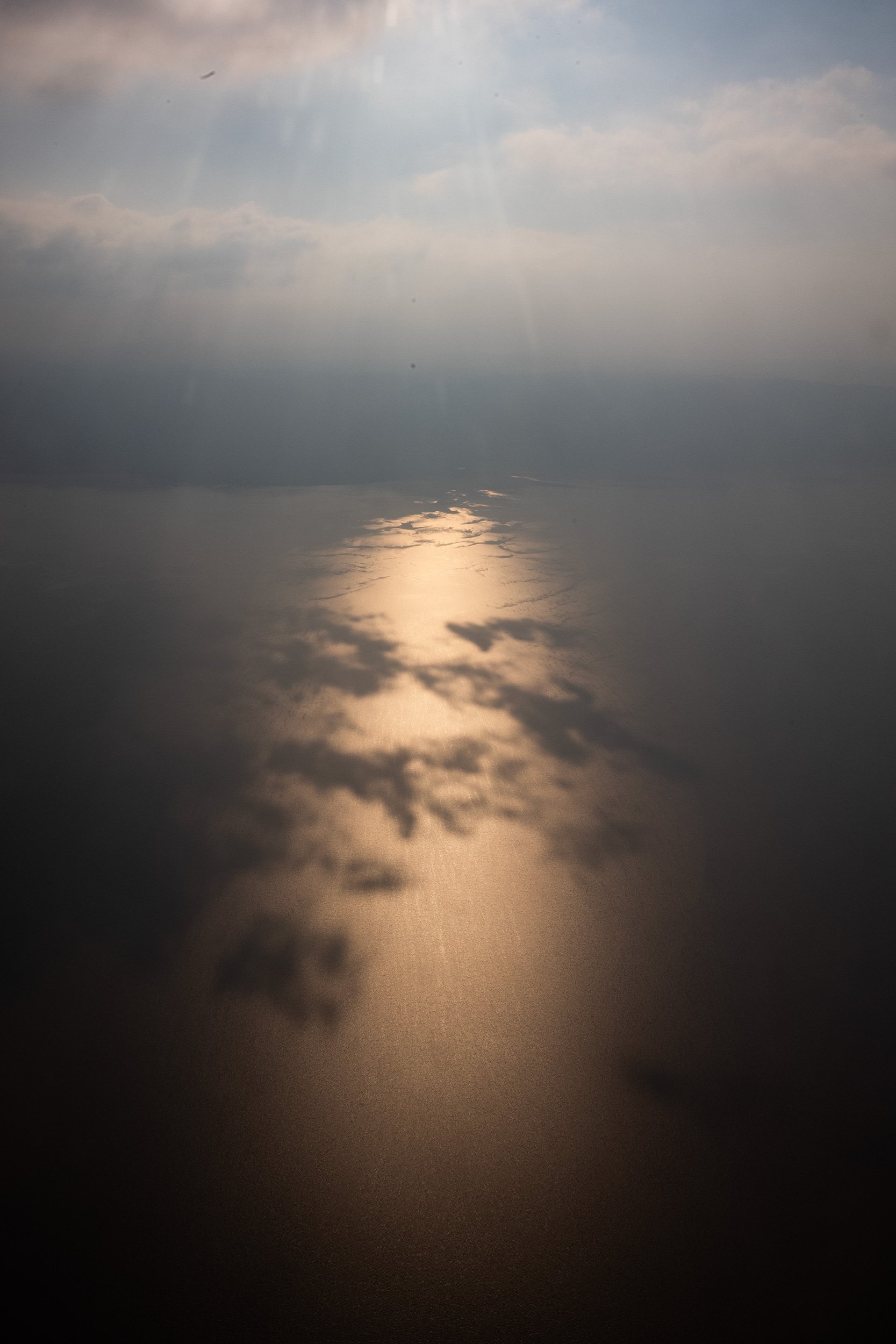
Allan met me at the airstrip. The Sanctuary vehicle was much nicer, with padded doors and windowsills. He drove us to the ranger station to check in and then to the camp. Along the way we saw elephant, giraffes, impala, and wildebeest.
In the car we talked about the plan for the next day. We decided on a 06:15 start with packed breakfast and lunch to spend as much time in the bush as possible. At first he suggested later starts, concerned about my travel day but I told him I hadn’t come to sleep. And I love watching the sun rise in the bush.
Approaching the camp I saw black and blue blankets hung from trees. I asked Allan what they were for. He told me they attract flies and keep them away from the camp. The flies are proven to be attracted to black and blue. Good thing I brought some non black clothing!
The camp itself is a temporary camp. It sits here from May/June to November when it follows the wildebeest. To set it up it takes 40 people 2-3 weeks. It’s super cool. Seeing I was alone, they asked which side of the bed I sleep on so they know what side to turn down.


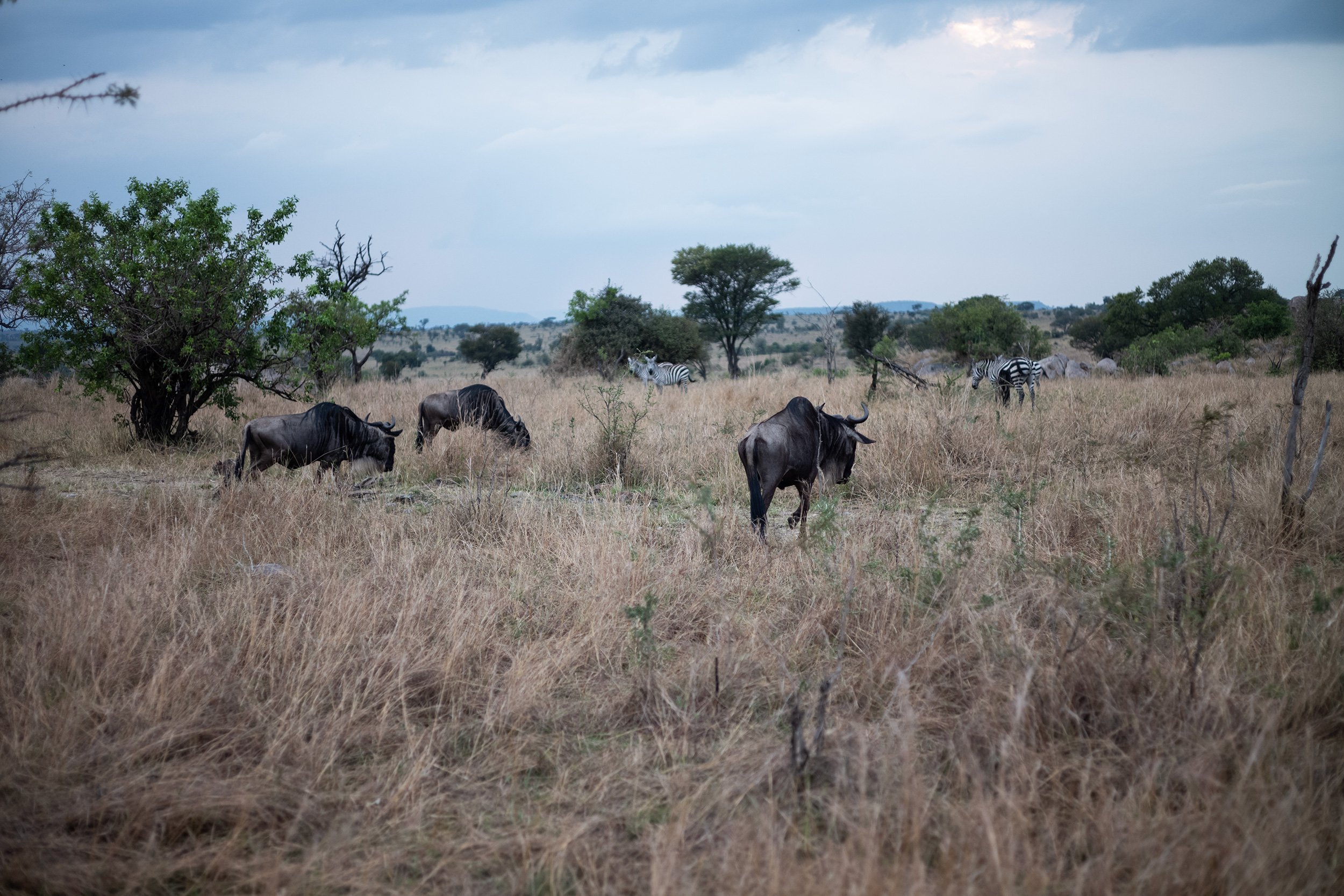
A disturbed sleep.
I was awoken this morning by an ant infestation. There were hundreds if not thousands of them, blackening the mosquito curtain, covering the floor. I didn’t know what it was at first. I woke up, feeling something on my arm. At first I hid under the covers thinking I had screwed up the mosquito netting and it was flies or mosquitos attacking me until I felt the bites all over my body. I grabbed my phone to take a look. There were black dots everywhere. I turned on the lights and the netting was black with ants. I grabbed the flashlight and ran outside to signal the staff, brushing ants away from everywhere.
It was the night attendant who identified it as ants. He said we’d move to a new tent and we went back in to grab some things. The floor was covered. We put some things into my backpack and walked over to the next tent. It wasn’t set up and he asked me to wait. The manager arrived and he said they were setting up a new tent for me.
When it was done all of my things were moved. I checked my bags and found ants. The attendant helped me empty them from my things. I then went fitfully to bed.
Morning.
The butler woke me at 05:45. He asked if he should bring the tea into the tent. Yes please. I got ready and met Allan outside. He had already picked up our picnic breakfast and lunch.
Driving out we saw a group of hyena cubs poking their noses out of their den. We paused to watch them. They were curious, tentatively stepping out of their den, but afraid to go too far.
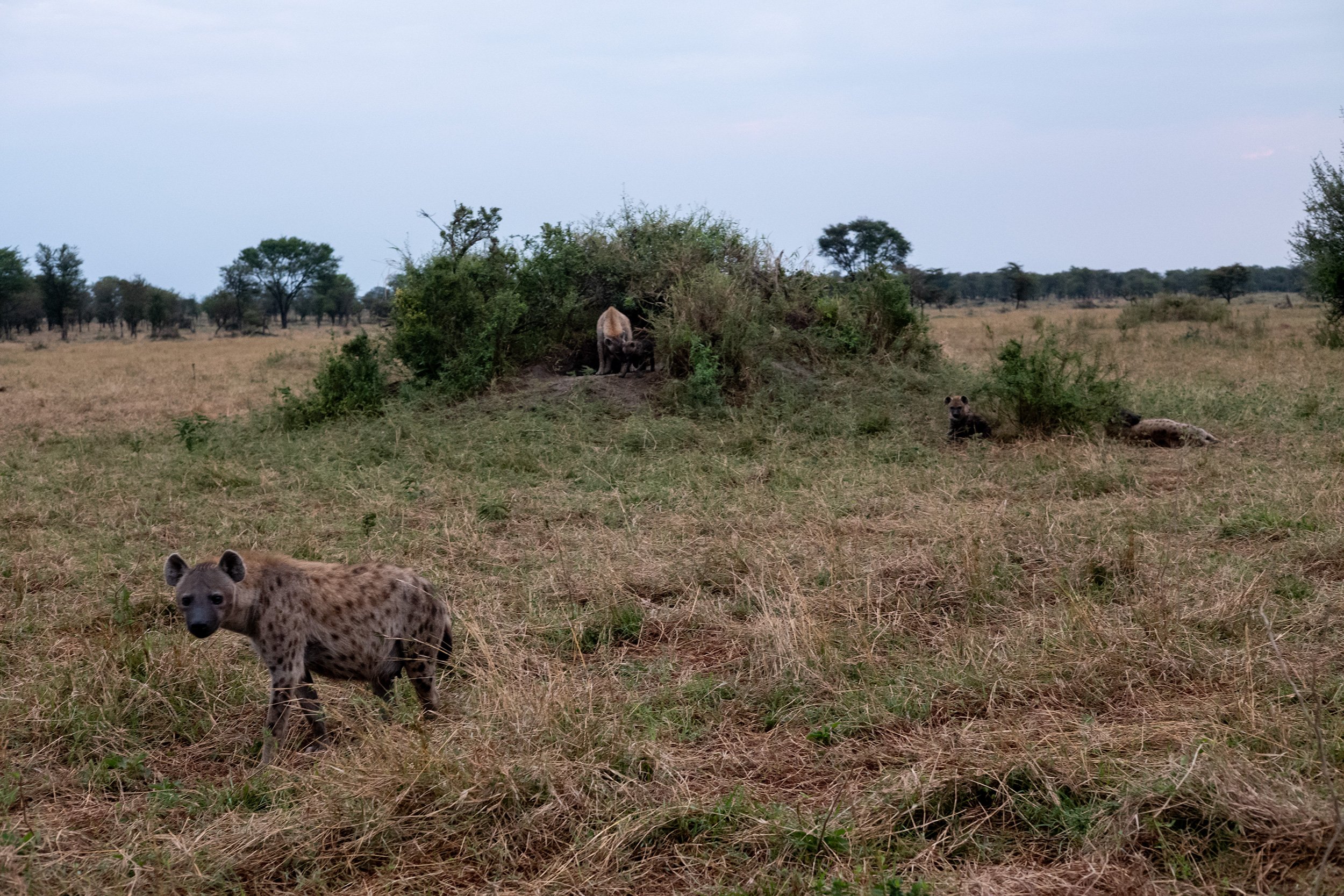

We drove on. A stork was fishing in a small pond, its beak clacking as it reached repeatedly into the water, unsuccessfully. We watched as it slowly paced back and forth, clacking its beak, in search of breakfast.


As we drove through the bush we came across herds and herds of wildebeest, stretching as far as the eye could see, migrating slowly across the plains. I had never seen so many animals in one place, let alone so many of a single type of animal. It was an awesome sight to behold.
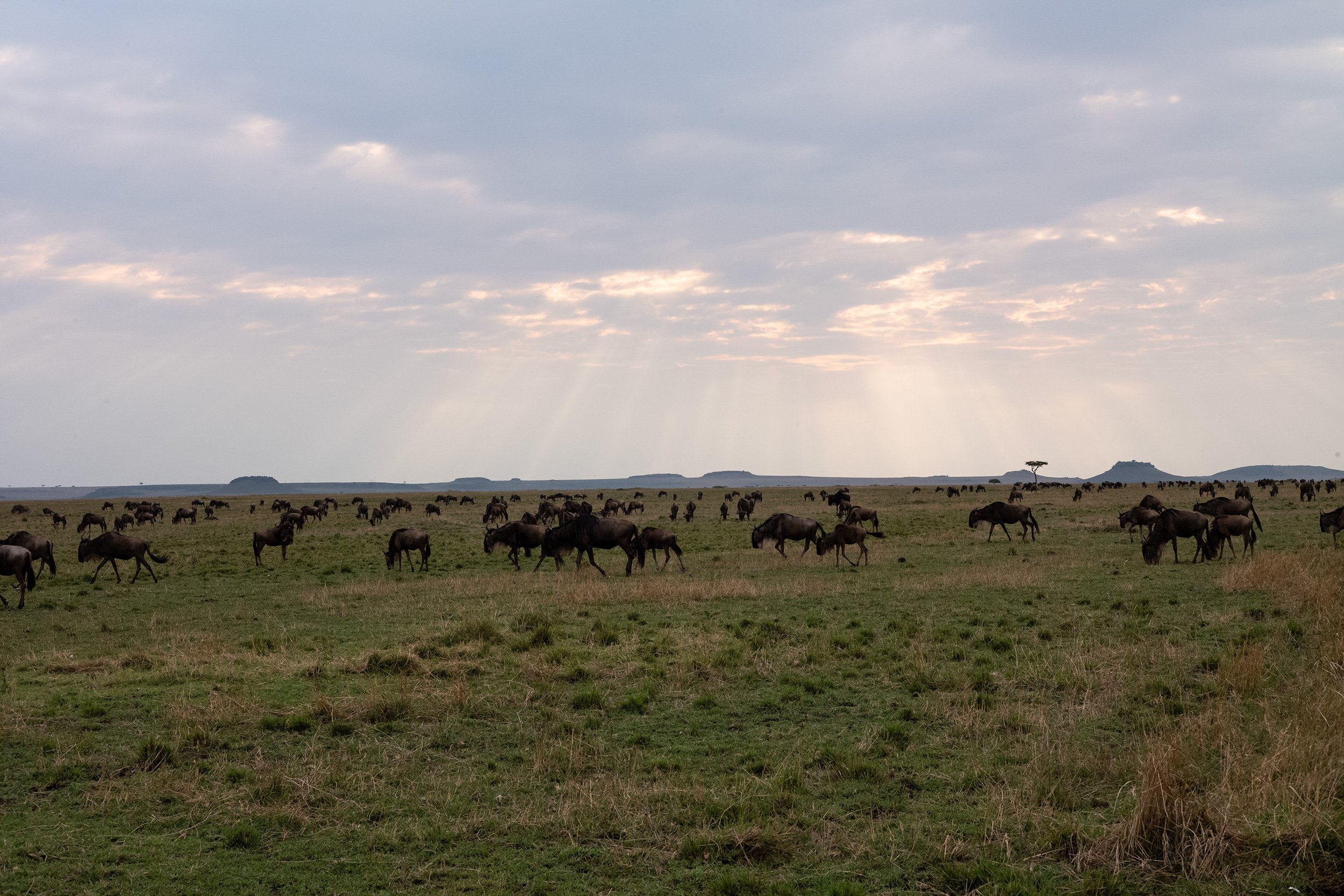
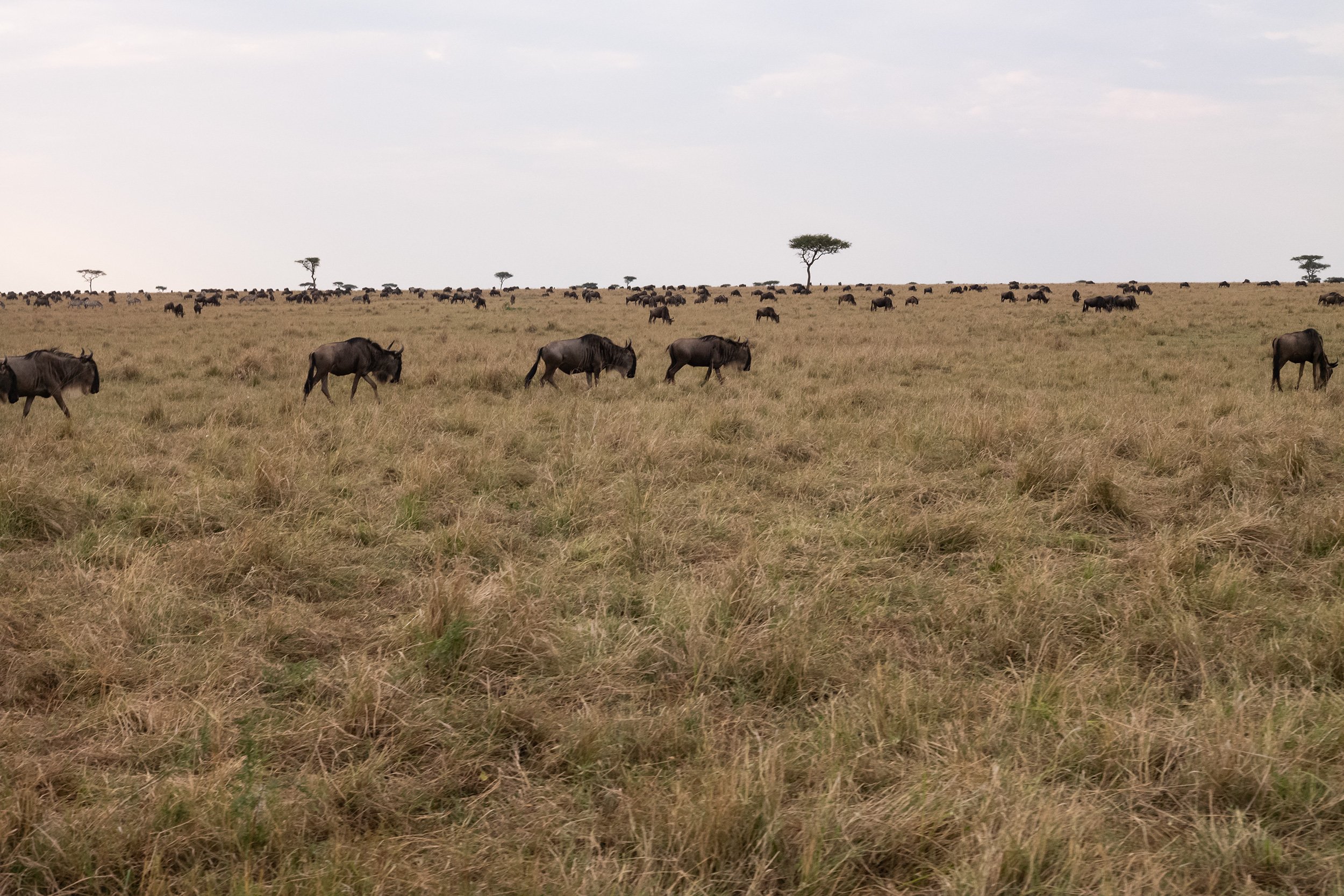
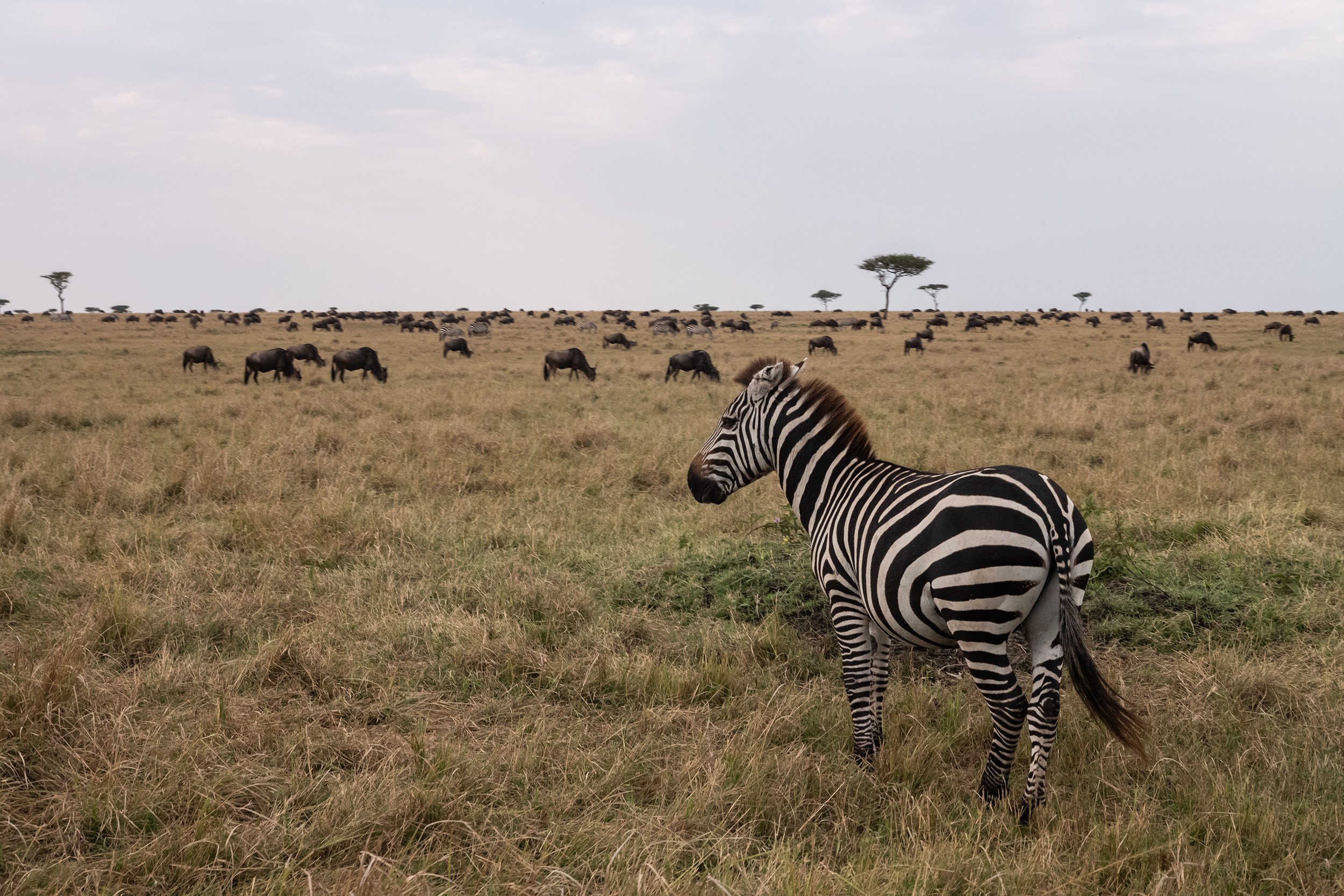

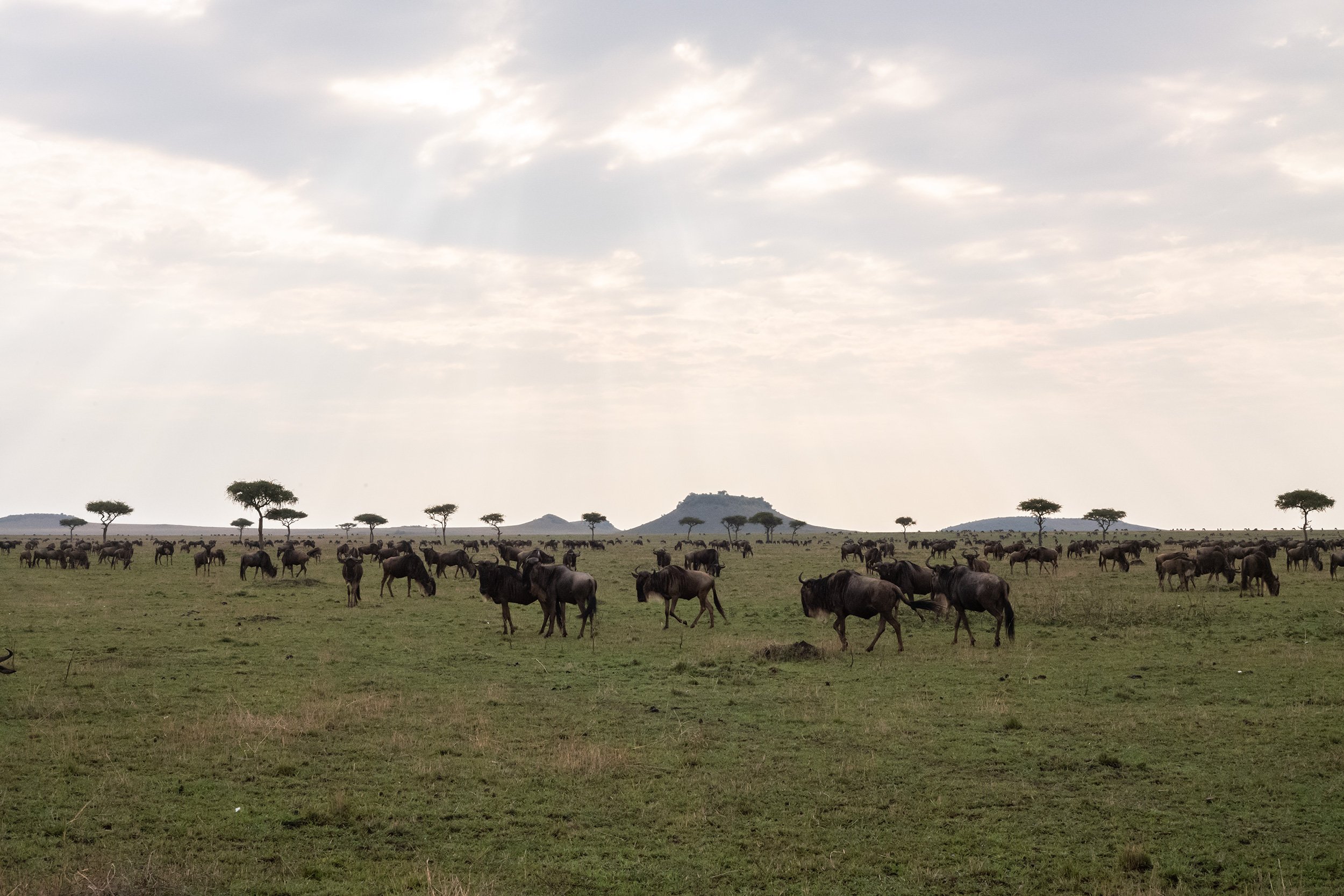
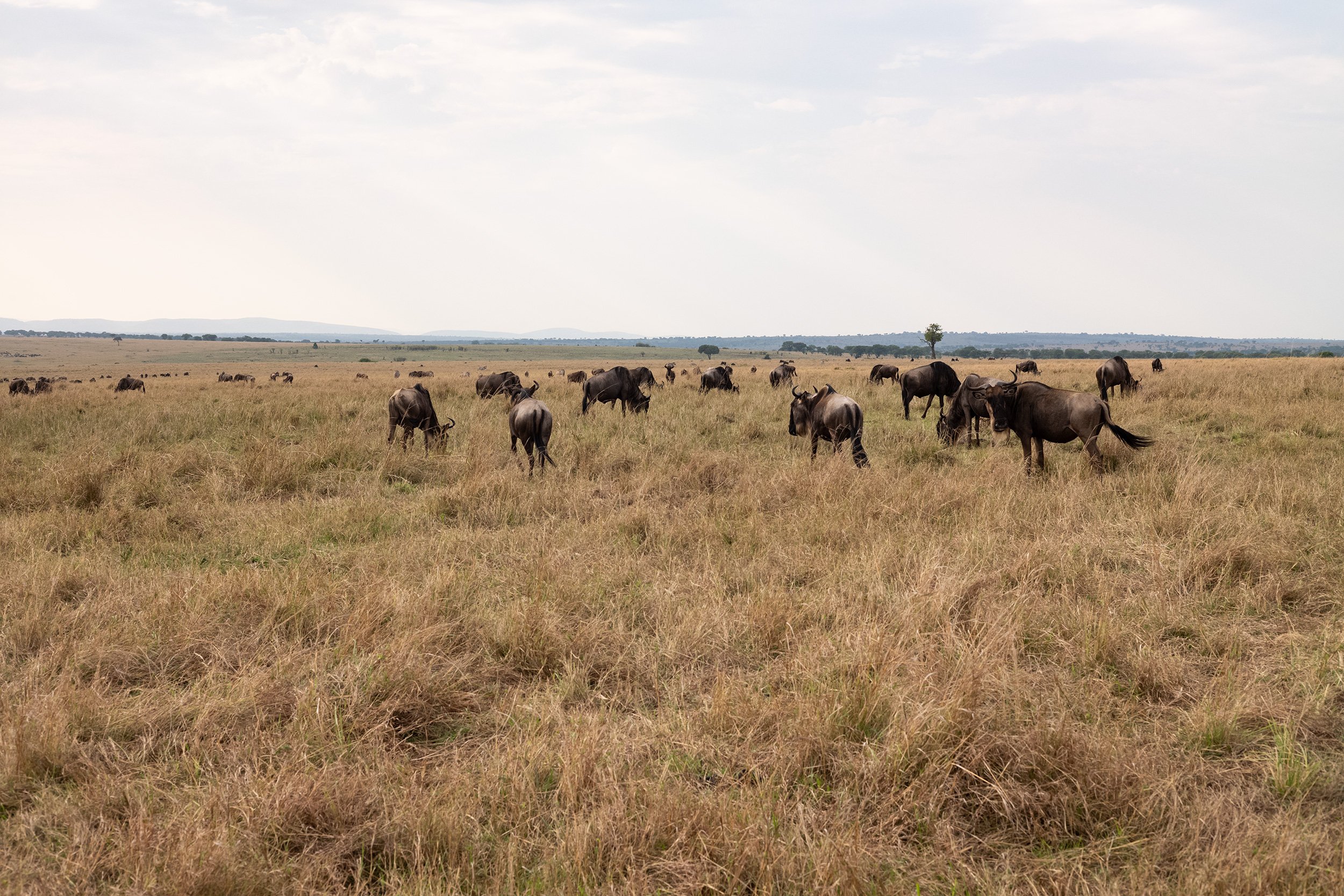
We went looking for cats, without luck. We drove looking for a crossing; no luck. Passing another group of vultures eating carrion we paused to observe the feast. It smelled like poo.
Driving on we saw eland and zebra and elephants, in search of a river, in search of a crossing.



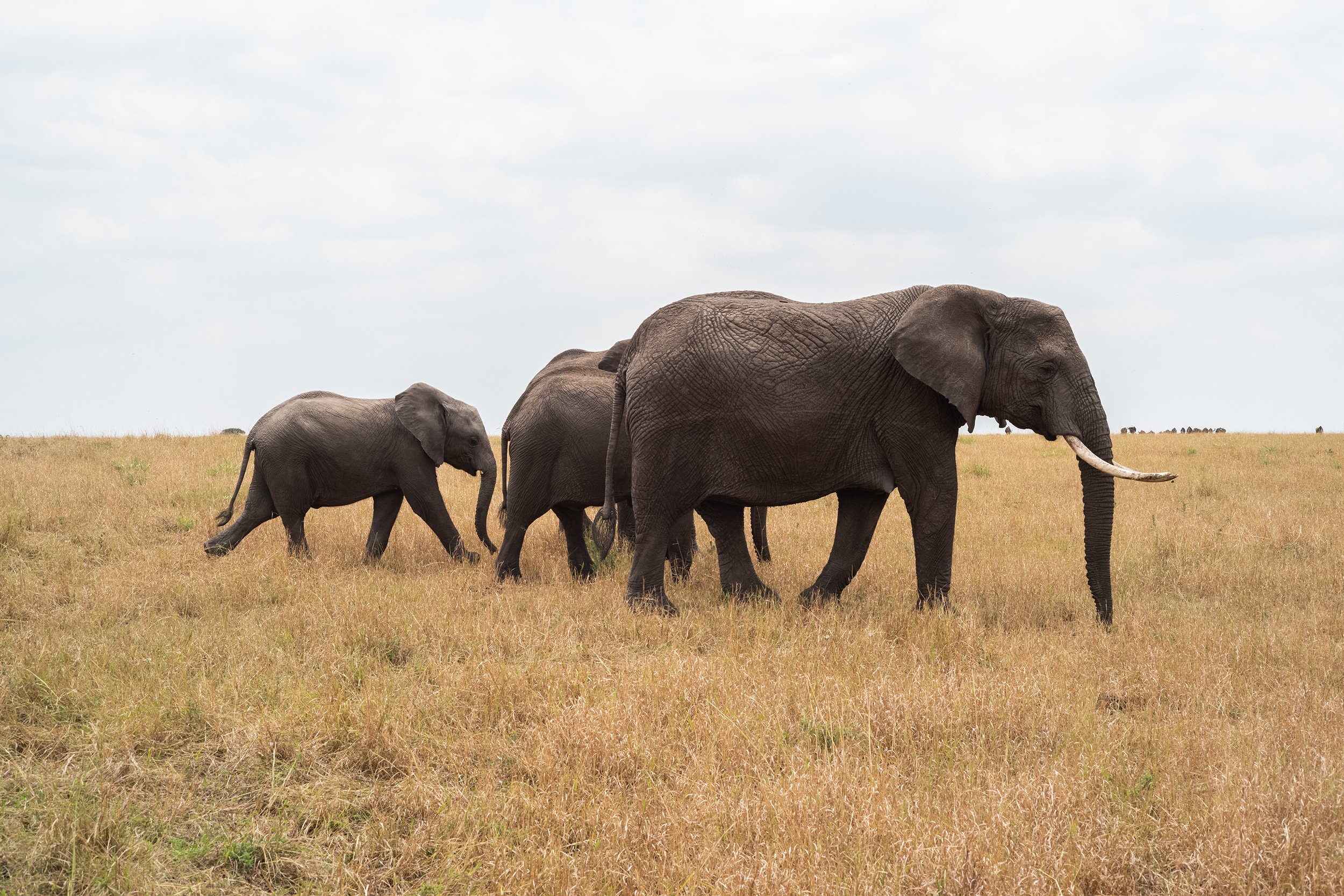

We drove to a river and waited. Allen had spotted a small herd of around 50-60 wildebeest on the other side, cautiously eyeing our side. He didn’t want to spook them and so we sat under a tree, a few hundred meters from the banks. Zebra walked gently to the edge of the water.
Allen told me that the wildebeest waited for the zebra to see if the crossing were clear. It was easier for them to escape the crocodile and so they used them as test balloons to see if the crossing were safe.
Finally we were rewarded for our patience. The herd started across and Allen leapt into action, racing to the bank of the river. He parked our jeep on top of an embankment with an amazing view of the herd. The wildebeest crossed the river towards us, out of the water, and thundering up the banks right in front of our jeep. I couldn’t contain my excitement and could barely photograph the site, so excited I was to finally see wildebeest crossing the river.
As a boy, an aunt had given us subscriptions to National Geographic every Christmas, and I remember seeing a cover story about the wildebeest migration, the photo of the animals crossing the river. Ever since then I had longed to see it for myself, and I was finally being rewarded.
The current was strong, pushing the wildebeest downstream as they swam across. At the very end, a calf struggled to follow the herd. Allan called out and I looked up just in time to see a crocodile reach up out of the water and clamp its jaws around the calf. A woman in a neighboring jeep screamed. The crocodile pulled the calf under the water. The last of the herd thundered before us and then slowed their pace as they wandered into the plains. As the wildebeest calmed so did my heartbeat.
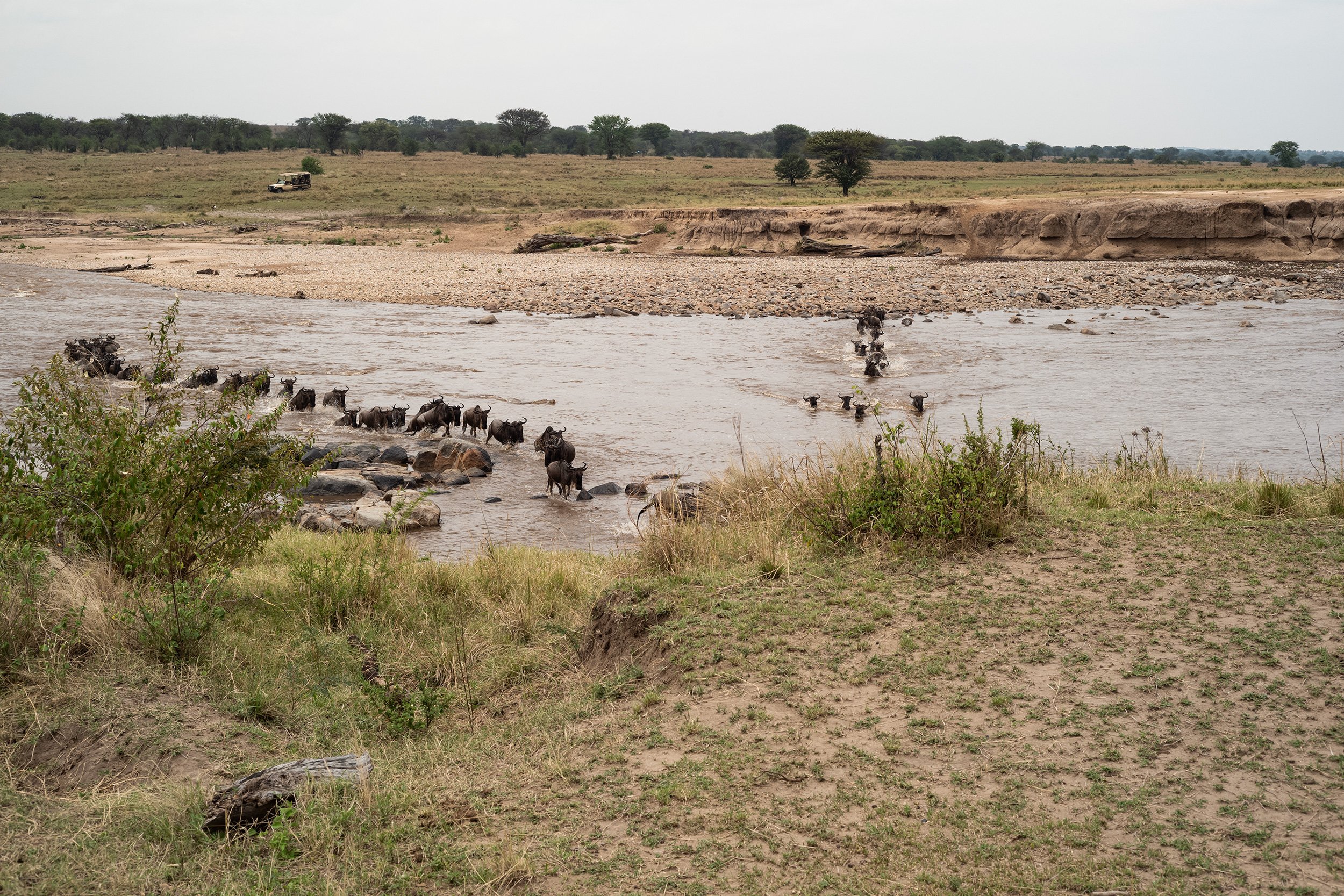
We ate lunch in a beautiful spot in the bush. Afterwards, we paused at another point by the river in hopes of seeing a crossing. Allan kept a keen out while I napped. After a while we moved on. It looked as though the jeeps had spooked the herd.
We drove off in search of cats, seeing elephant and giraffe, and then a lioness from afar. By a small pond we came across a male lion quenching its thirst and then rolling to nap. Allan had delivered, and he was rightfully proud.
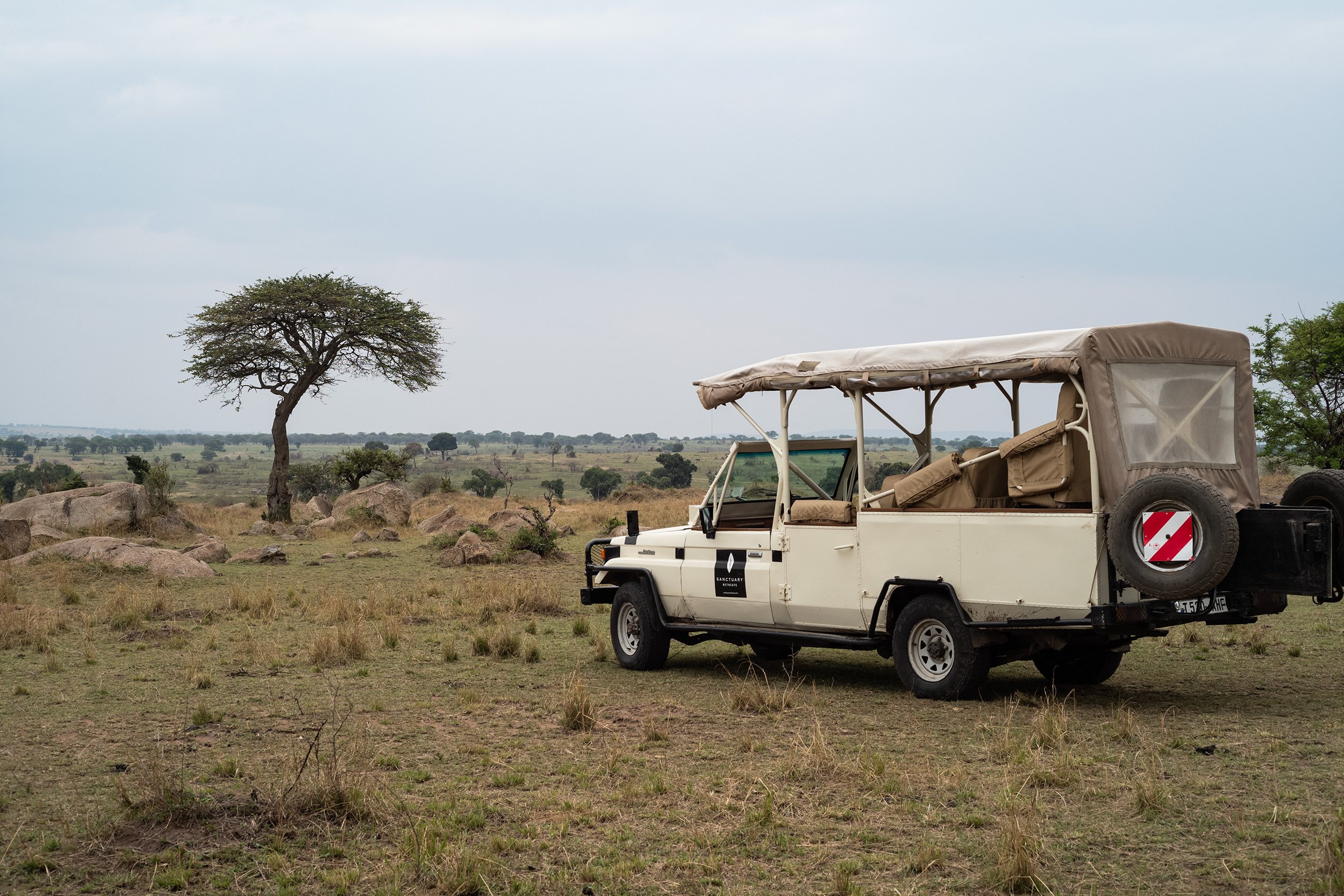


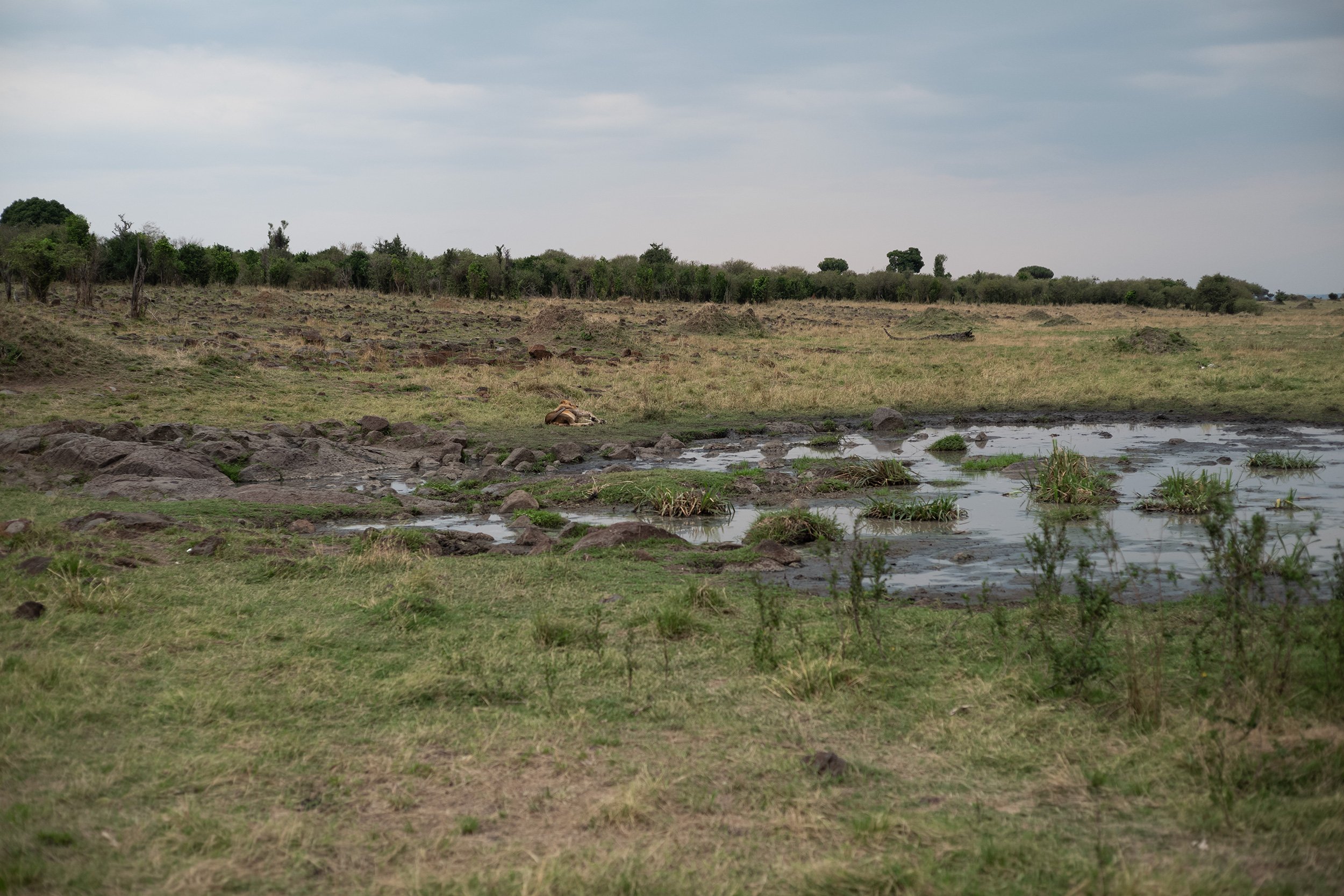
Back at the camp I had a drink with Allan. We talked about the day and about his future plans. He wants to buy his own jeep eventually and work for himself as a freelancer. He’s budgeted it out and has a plan.
When he leaves he tells me that he’ll pick me up at 0600 so we can do a morning drive before he has to drop me off at the airport. I thank him for the amazing day and turn to head back to my tent.
The butler tells me that he’s laid out something on the ground and that I should experience no ants. He then tells me to make sure I zip the tent properly to avoid snakes. I had been looking for a close encounter with nature. Little did I know it would be with ants!
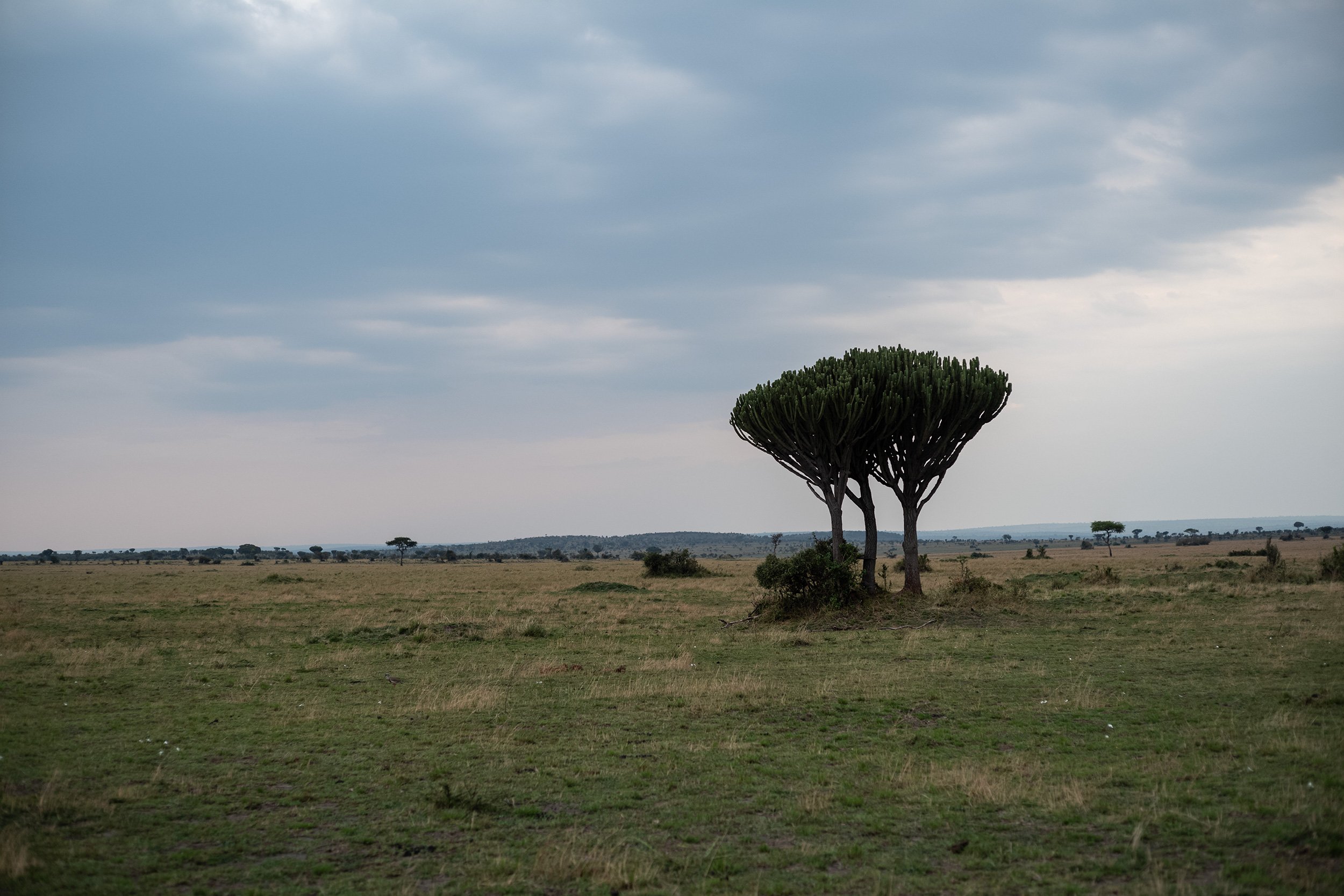
Departure.
This morning I bid adieu to the camp. Allen was already there, his converted Toyota loaded with breakfast. I bid adieu to the staff and Manuel told me to say hi to the people at the Ngorongoro camp. I promised him I would.
The sunrise was stunning, and once again I thought about how fortunate I was to be able to come to Africa and experience all of this. And I wasn’t even half-way through my trip.
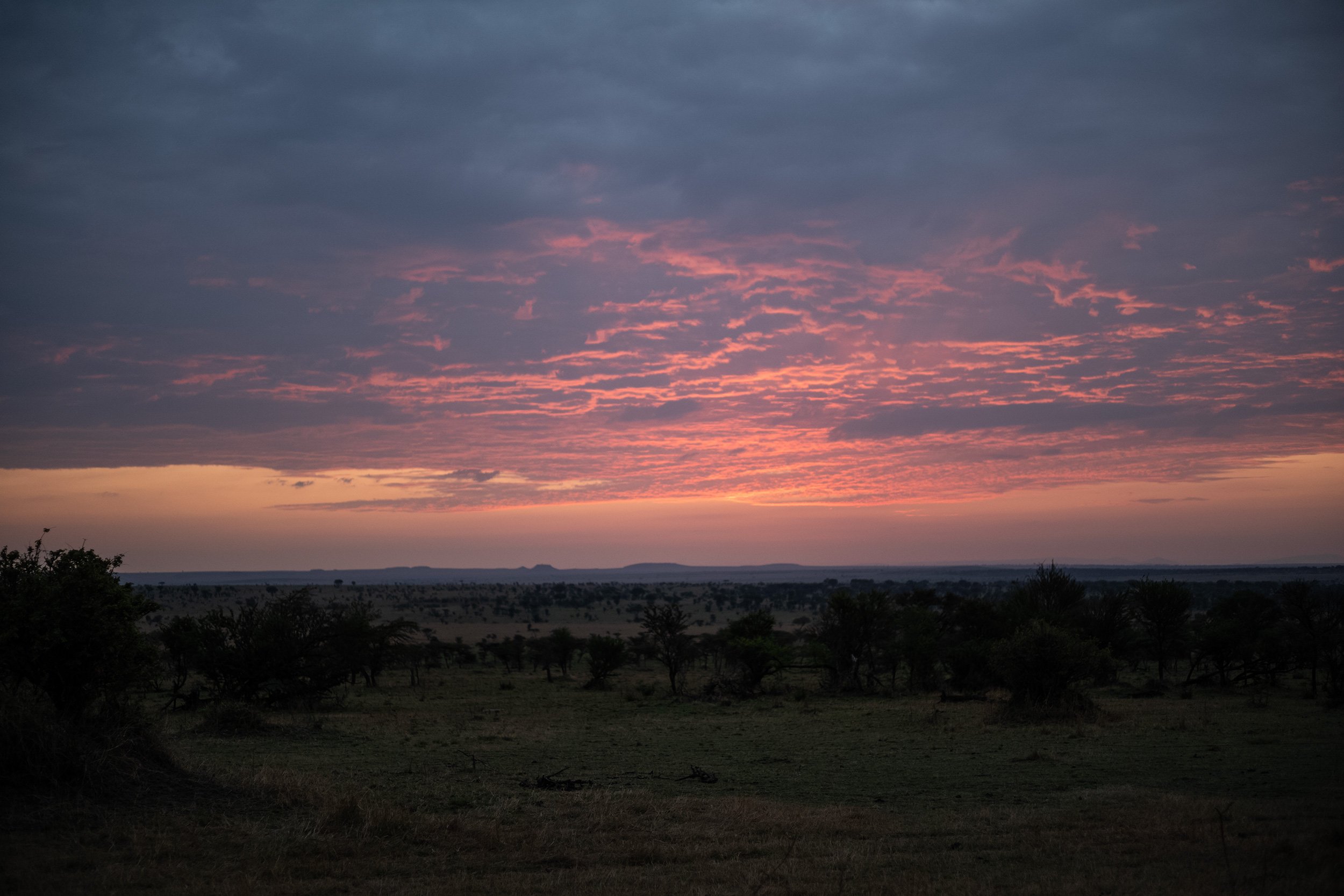


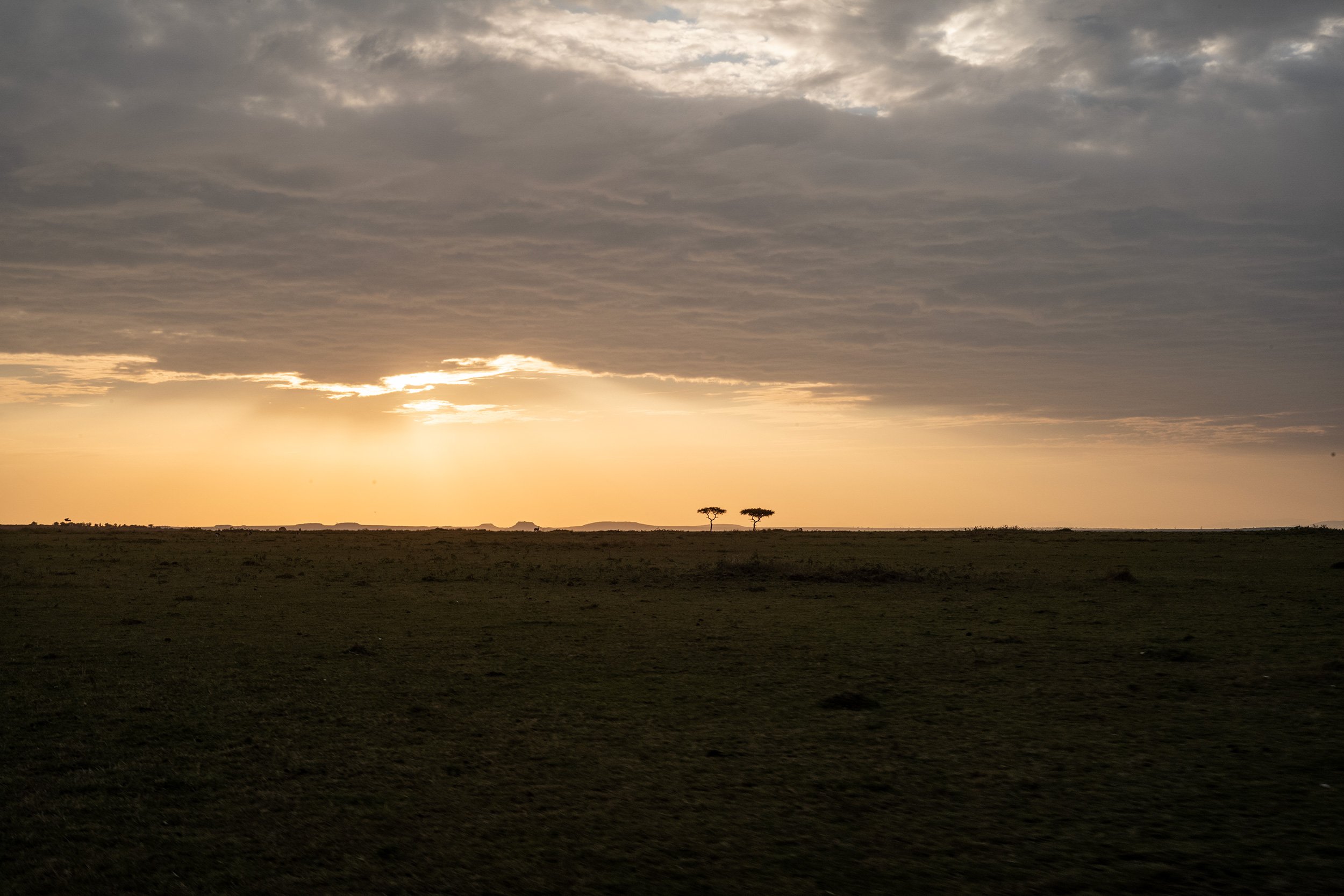
We drove off in search of cats, but didn’t find any. In the distance we saw hyena chasing wildebeest, but a small stream kept us from approaching.
We stumbled upon hyena feeding on the carcass of a wildebeest; birds of prey stood about waiting for them to leave. A hyena walked away with a bone. Allan surmised it was a lion kill from last night. As we approached we startled the hyena who walked off with its pack.
We ate breakfast in the bush surrounded by wildebeest: chicken sausage, french toast, hard-boiled eggs and mushrooms. I mentioned to Allan that thanks to National Geographic, documentaries, and other photos, I tend to think of the migration as the the crossing when in reality—I gestured to the thousands of wildebeest around us—it’s all of it.
As we were finishing up, Allan said that at times you can see 20 lions in the area where we ate. Today there were none.
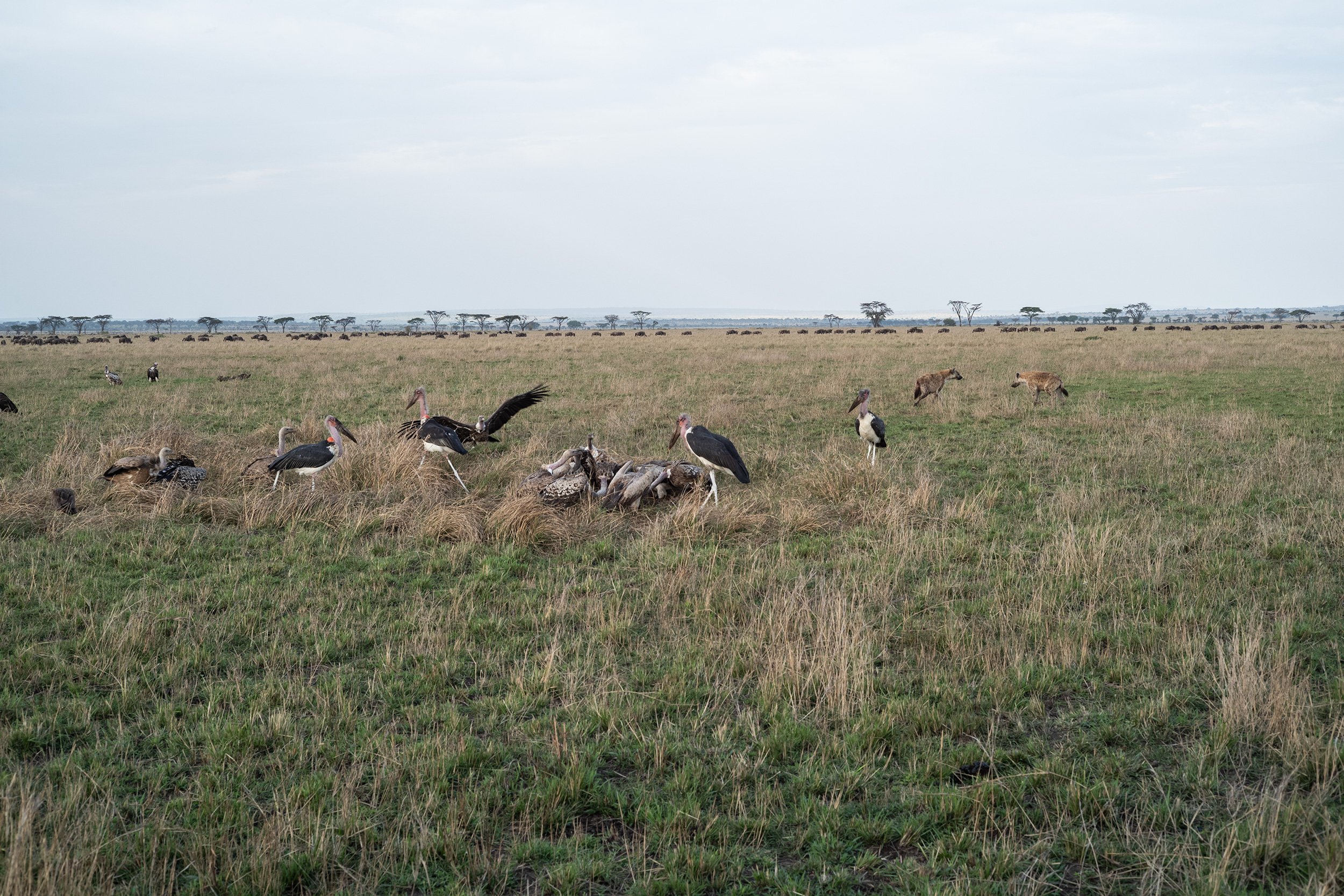
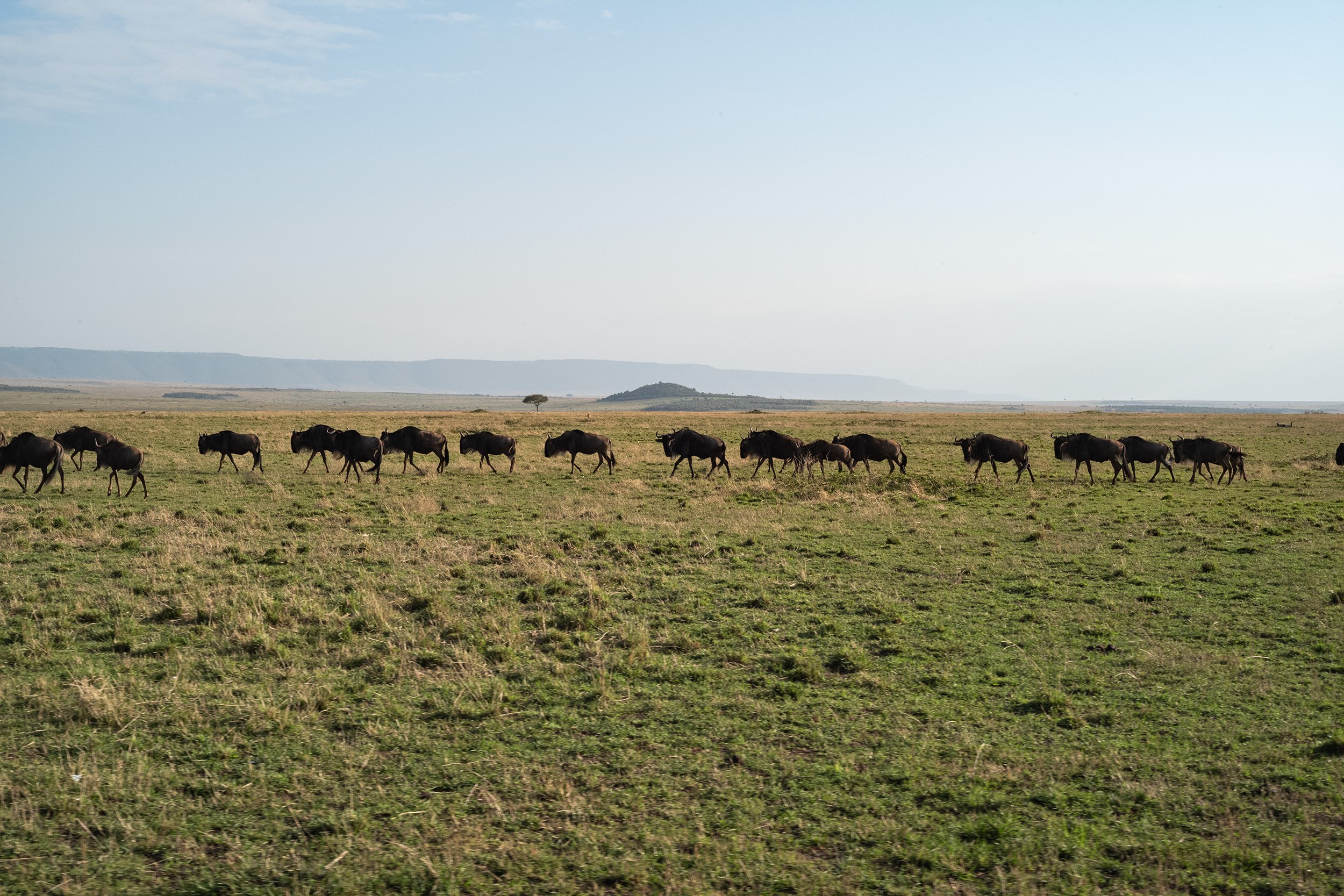
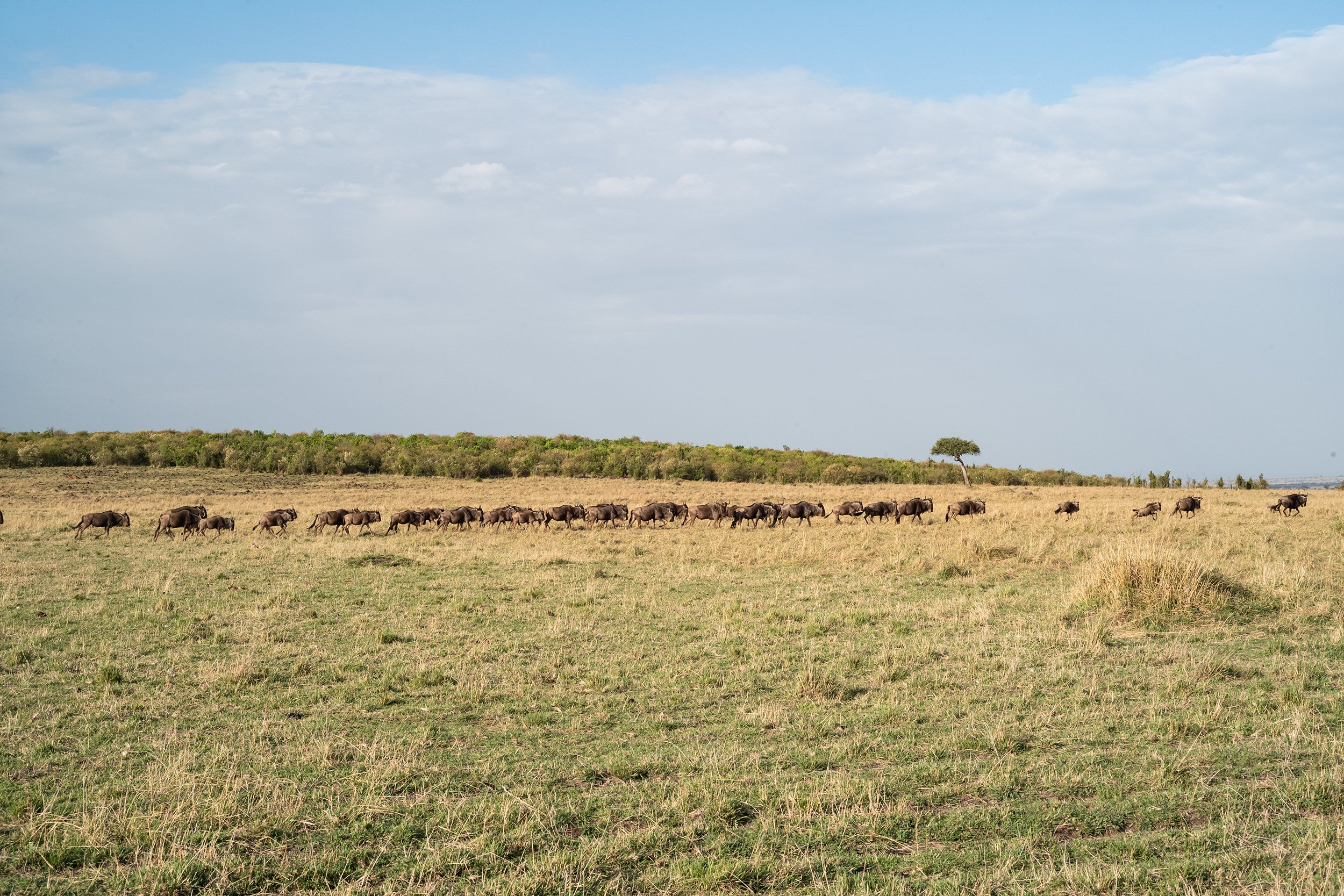
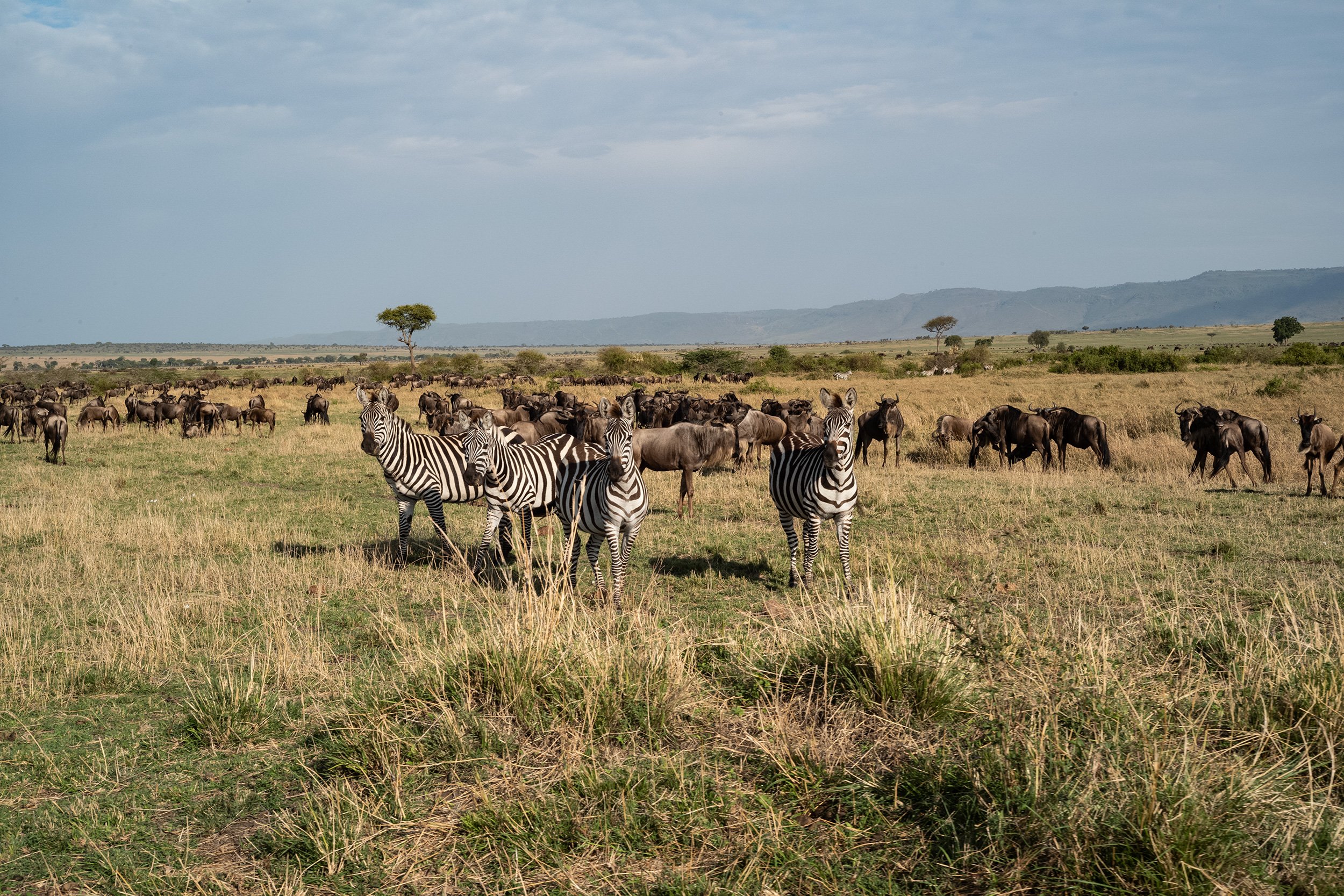
I bid adieu to Allan at the airstrip, boarding the plane and turning to wave goodbye. My next stop was the Ngorongoro Crater, and the flight was about to leave. 🇹🇿
